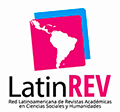Power relations and subtitling: from the concept of power as an authoritarian noun to an action verb in the translation process
DOI:
https://doi.org/10.11606/issn.2317-9511.v30i30p87-101Keywords:
Translation, “Power”, Resistance, SubtitleAbstract
Discussions conducted on the basis of translated texts reveal particularly fruitful when problematizing language and difference, as well as discussing power relations and resistance (RAJAGOPALAN, 2007; CORACINI, 2010). Thus, our aim is to discuss power relations and resistance of/through/in subtitle translation. To this end, we call upon a subtitle cutout taken from the documentary Waste Land (translated into Brazilian Portuguese as Lixo Extraordinário) (2009), produced by Vik Muniz, so as to analyze how the presence of the other is materialized in the translator’s choices and, thus, becomes an act of revelation of otherness. Looking at translation through the lens of difference allows us to revisit the noun “power”, as representation of absolute authority of a given center over periphery, to the verb that represents ability and opportunity to have things done.Downloads
Download data is not yet available.
Downloads
Published
2017-12-20
Issue
Section
Articles
License
Copyright (c) 2022 Fernanda Boito, Liliam Marins

This work is licensed under a Creative Commons Attribution-NonCommercial-ShareAlike 4.0 International License.
Autores que publicam nesta revista concordam com os seguintes termos:
- Autores mantém os direitos autorais e concedem à revista o direito de primeira publicação, com o trabalho simultaneamente licenciado sob a Licença Creative Commons Attribution BY-NC-SA que permite o compartilhamento do trabalho com reconhecimento da autoria e publicação inicial nesta revista.
- Autores têm autorização para assumir contratos adicionais separadamente, para distribuição não-exclusiva da versão do trabalho publicada nesta revista (ex.: publicar em repositório institucional ou como capítulo de livro), com reconhecimento de autoria e publicação inicial nesta revista.
- Autores têm permissão e são estimulados a publicar e distribuir seu trabalho online (ex.: em repositórios institucionais ou na sua página pessoal) a qualquer ponto antes ou durante o processo editorial, já que isso pode gerar alterações produtivas, bem como aumentar o impacto e a citação do trabalho publicado (Veja O Efeito do Acesso Livre).
How to Cite
Boito, F., & Marins, L. (2017). Power relations and subtitling: from the concept of power as an authoritarian noun to an action verb in the translation process. TradTerm, 30, 87-101. https://doi.org/10.11606/issn.2317-9511.v30i30p87-101







